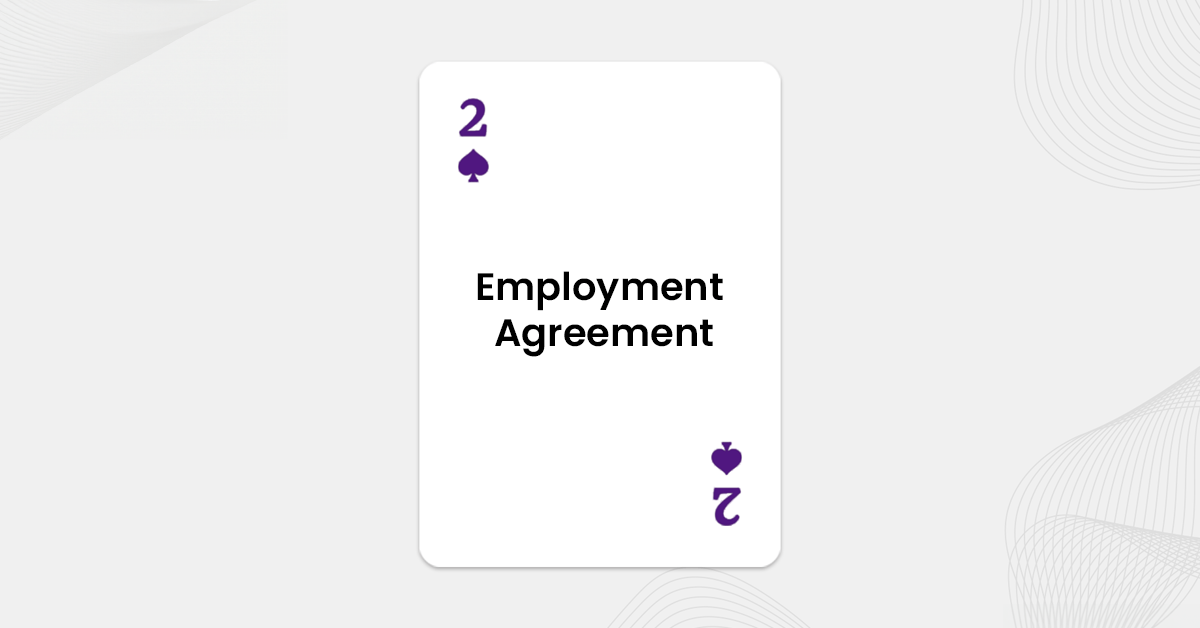(Note: This post was initially published on LinkedIn, and the following iteration is a syndicated and updated version of the same.)
Employment agreements are essential for small businesses.
Unfortunately, small business owners often lack the attention, time, and labour to draft precise and enforceable employment agreements. At best, imperfect employment agreements may result in easily resolved misunderstandings.
But at worst, misunderstandings can turn into expensive legal battles.
Like other small business contracts, employment agreements are used to protect your business if something goes wrong.
Here, the breakdown is between the business and an employee, potentially resulting in liability to the owner. So, at the inception of the employment relationship, small business owners want to prevent or reduce liability through contracts.
Unfortunately, small business owners often rely on employment agreement templates taken from the web or books. There are several problems with these low-price or free resources: They may not apply to the state, county, or municipality where your business is located. They may apply inapplicable or overruled statutes, regulations, or laws.
And they may not include terms and provisions that are relevant or material to your business.
Let’s look at the five common types of small business employment agreements and how owners can take steps to draft them, including help from professionals who know small business contracts.
#1. Employment Offer Letter
The offer letter is a contract between the small business owner and the employee.
Consider it an “initial” employment agreement, i.e., one that does not always include all the essentials of the “subsequent” employment agreement. For example, the offer letter may include a title, salary, and some description of responsibilities. But it may exclude any discussion of hours, vacation, holidays, benefits, or confidentiality.
To put it in more legal terms, the offer letter may not constitute the entire agreement between the parties. However, courts often construe an offer letter as an implied employment agreement.
#2. Employment Agreement
The “subsequent” employment agreement is the actual contract between the small business owner and the employee that goes beyond the outline of the offer letter. The employment agreement specifies the range of employment-related matters and complies with the applicable law.
While this post cannot detail all the essentials of an employment agreement (ex. non-competition, intellectual property ownership, tax obligations, appraisals, bonuses, dispute resolution, reference to employee handbook), the goal of this kind of contract is to ensure that all the expectations of the parties are addressed, and the relevant law is applied.
#3. Consulting Agreement
A consulting agreement is for persons who work for your small business on an independent basis.
Such an agreement typically outlines the services the “freelancer” will provide, payment, terms, access and equipment, among other relevant provisions.
#4. Non-Disclosure and Confidentiality Agreements
These types of agreements, separately or incorporated into the employment agreement, limit what proprietary information the employee may share, if any.
Such sensitive information typically includes revenue, customer lists, sales information, intellectual property, and trade secrets.
#5.Non-Compete Agreements
Non-compete agreements, again separately or incorporated into the employment agreement, generally limit an employee’s ability to work for a competitor after leaving your business. Such agreements may also prevent employees from going into business for themselves using information they learned at your company.
In future posts, we’ll discuss many of these related agreements – including Consulting Agreements, Non-Disclosure and Confidentiality Agreements, and Non-Compete Agreements – in more detail.
The Growing Need for Employment Contracts
It’s hard to believe how many small business owners we’ve met feel that employment agreements are unimportant and subsequently fail to devote the time and resources necessary to avoid employment-related legal liability and financial losses.
Employment contracts are necessary to protect owners and employees, set expectations about work, and form a court-recognized relationship between business and worker. That’s important stuff.
Professional, cost-effective contract management services are available. We ask small business owners the right questions, then structure, and create relevant legally binding employment agreements.
And as your business grows, we’re there to review, revise and manage your employment and other contracts.




